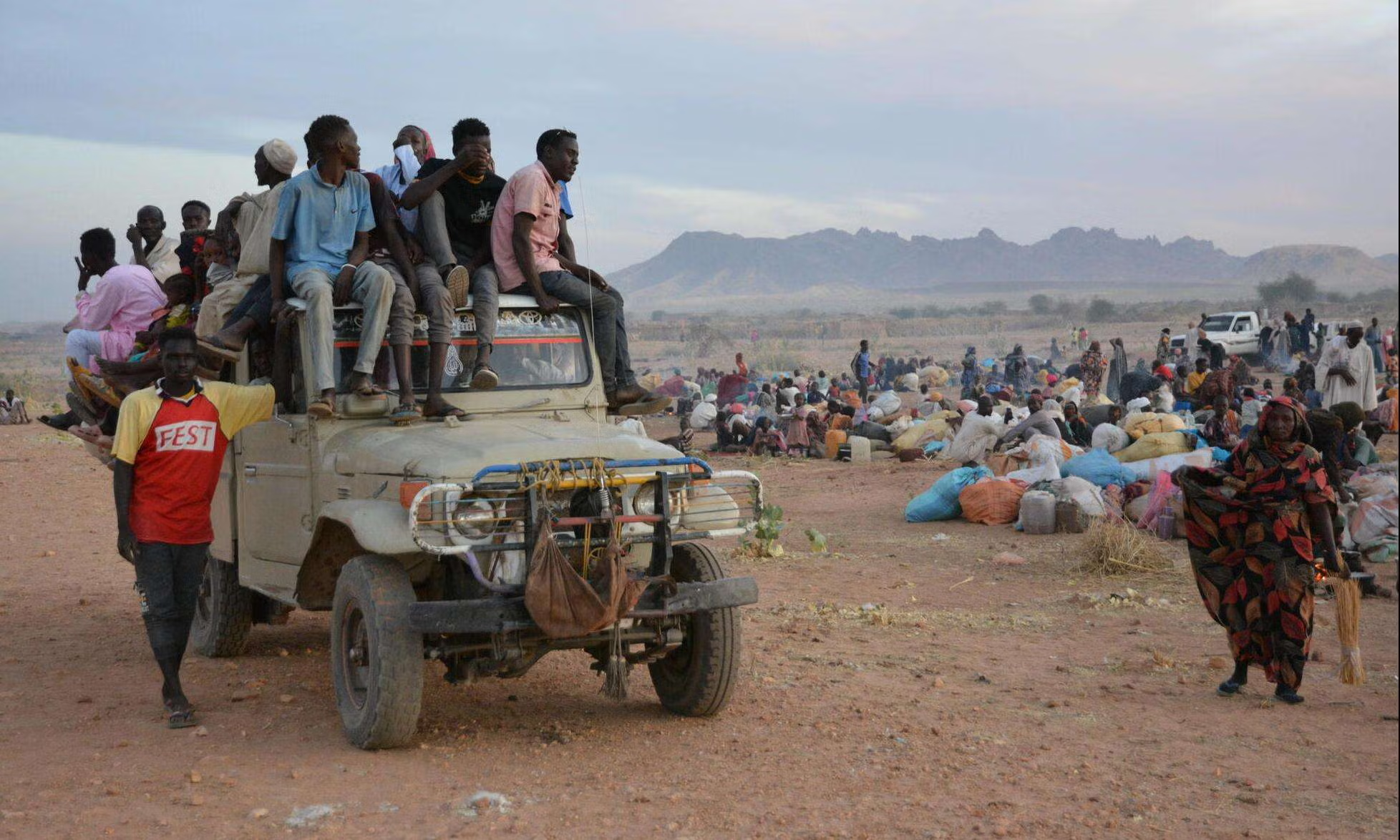The city of El Fasher in North Darfur has become the epicenter of one of the worst atrocities in Sudan’s recent history. Following its capture by the Rapid Support Forces (RSF), chilling reports and verified footage have surfaced showing widespread executions, torture, and devastation inflicted on civilians. The fall of El Fasher marks not only a major military victory for the RSF but also a human tragedy that has shocked observers around the world.
A City Trapped and Overrun
After months of siege, El Fasher — the last major city in Darfur still under the control of Sudan’s national army — finally fell to the RSF in late October. Once the city was surrounded, communication lines were cut and civilians were trapped inside. When RSF troops entered the city, they launched a campaign of terror that witnesses describe as systematic and deliberate.
Residents who managed to escape spoke of house-to-house raids, targeted killings, and mass executions carried out in public squares. Many of those killed were men and boys from non-Arab ethnic communities, including the Fur and Zaghawa groups. Witnesses described scenes of horror: bodies left in the streets, entire neighborhoods burned, and hospitals overwhelmed by the wounded.
Satellite evidence and eyewitness videos have confirmed large areas of destruction across El Fasher, with several mass graves identified on the city’s outskirts.
Ethnic Cleansing Fears
The nature of the violence has raised serious concerns among human-rights investigators that the RSF’s actions amount to ethnic cleansing. Survivors report that men were separated by ethnicity before being executed, while women and children were forced to flee into the desert.
Human-rights experts say this mirrors past atrocities from the early 2000s, when Darfur was engulfed in genocidal violence. Analysts warn that the current wave of attacks may be part of a calculated effort to eradicate entire communities seen as sympathetic to the Sudanese Armed Forces.
“The level of brutality we are seeing in El Fasher suggests intent — not chaos,” said one regional analyst. “This is organized violence aimed at reshaping Darfur’s ethnic landscape.”
A Humanitarian Disaster
The humanitarian situation in El Fasher has deteriorated rapidly. Hospitals and clinics have been looted or destroyed, medical personnel killed, and the few remaining doctors are working with almost no supplies. Electricity and running water are gone, and food stocks have dwindled to almost nothing.
Tens of thousands of civilians are attempting to flee toward Tawila and other nearby areas, but many are intercepted at checkpoints controlled by RSF fighters. Aid agencies describe scenes of desperation — families walking for days through the desert without food or water, mothers carrying wounded children, and entire villages emptied overnight.
The United Nations estimates that thousands of people have been killed since the assault began, though the true number could be far higher due to restricted access and a complete communications blackout.
International Outcry and Calls for Justice
The unfolding atrocities in El Fasher have drawn condemnation from across the world. UN officials have described the situation as “a living nightmare” and are urging immediate action to prevent further bloodshed. Global human-rights organizations have called for independent investigations, targeted sanctions, and the referral of the case to the International Criminal Court.
Despite these appeals, international response has been slow. The fragmented nature of the conflict and geopolitical divisions among global powers have made it difficult to establish a coordinated plan to stop the violence or deliver humanitarian aid.
Regional observers warn that without urgent intervention, El Fasher could become another symbol of the world’s failure to act in time — much like past tragedies in Rwanda and Darfur itself two decades ago.
The RSF’s Growing Power
The fall of El Fasher consolidates the RSF’s control over the entire Darfur region, giving the group significant leverage in Sudan’s wider civil conflict. Led by Mohamed Hamdan Dagalo, known as “Hemedti,” the RSF has transformed from a tribal militia into one of the most powerful armed factions in the country.
By capturing El Fasher, the RSF now holds a critical position in western Sudan, rich in gold mines and trade routes. Analysts say this may allow Hemedti to dictate terms in any future political negotiations or peace talks — if they ever take place.
The Sudanese army, meanwhile, has been unable to mount an effective defense, leaving civilians exposed and isolated. With the central government losing ground across multiple fronts, fears are growing that Sudan could fragment entirely.
A Legacy of Silence and Suffering
For the people of El Fasher, the aftermath of the assault is a living nightmare. Families search through rubble for missing loved ones, survivors recount scenes of execution and sexual violence, and entire communities are left traumatized.
Many describe a sense of abandonment by the international community. Despite years of warnings from aid agencies and human-rights groups, no strong action was taken to prevent the city’s fall or protect its residents.
“This is not just a humanitarian crisis,” one activist said. “It is a moral failure — a reminder that when the world looks away, history repeats itself.”
What Comes Next
As El Fasher lies in ruins, attention now turns to whether the international community will act decisively to prevent further atrocities in Darfur and beyond. Human-rights lawyers are urging the establishment of war-crimes investigations, while humanitarian organizations are demanding immediate access to deliver food, medicine, and shelter to survivors.
Yet, for now, the prospects remain grim. The RSF shows no sign of halting its campaign, and Sudan’s army remains fragmented and disorganized.
If justice ever comes, it will likely arrive too late for the thousands already buried in mass graves outside El Fasher — victims of another dark chapter in Sudan’s history.
















Leave a Reply